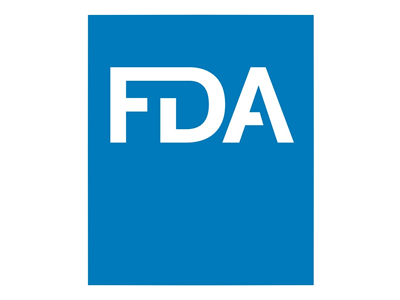FDA grants accelerated approval to dabrafenib in combination with trametinib for unresectable or metastatic solid tumors with BRAF V600E mutation

On June 22, 2022, the Food and Drug Administration granted accelerated approval to dabrafenib (Tafinlar, Novartis) in combination with trametinib (Mekinist, Novartis) for the treatment of adult and pediatric patients ≥ 6 years of age with unresectable or metastatic solid tumors with BRAF V600E mutation who have progressed following prior treatment and have no satisfactory alternative treatment options. Dabrafenib in combination with trametinib is not indicated for patients with colorectal cancer because of known intrinsic resistance to BRAF inhibition. Dabrafenib is not indicated for patients with wild-type BRAF solid tumors.
The safety and efficacy were evaluated in 131 adult patients from open-label, multiple cohort trials BRF117019 (NCT02034110) and NCI-MATCH (NCT02465060), 36 pediatric patients from CTMT212X2101 (NCT02124772), and supported by results in COMBI-d, COMBI-v, and BRF113928 (studies in melanoma and lung cancer already described in product labeling). Study BRF117019 enrolled patients with BRAF V600E mutation positive specific solid tumors including high grade glioma (HGG), biliary tract cancer, low grade glioma (LGG), adenocarcinoma of small intestine, gastrointestinal stromal tumor, and anaplastic thyroid cancer (ATC). NCI-MATCH Subprotocol H enrolled adult patients with BRAF V600E mutation positive solid tumors except patients with melanoma, thyroid cancer, or CRC. Parts C and D of Study CTMT212X2101 enrolled 36 pediatric patients with BRAF V600 refractory or recurrent LGG or HGG. The major efficacy outcome measure of these studies was overall response rate (ORR) using standard response criteria. For the 131 adult patients, a total of 54 (41%, 95% CI: 33, 50) experienced an objective response. The studies enrolled patients with 24 tumor types, including different subtypes of LGG and HGG. Among the highest representative tumor types, ORR was 46% (95% CI: 31, 61) for biliary tract cancer, 33% (95% CI: 20, 48) for high grade glioma (combined) and 50% (95% CI: 23, 77) for low grade glioma (combined). For the 36 pediatric patients, the ORR was 25% (95% CI: 12, 42); DOR was ≥6 months for 78% of patients and ≥24 months for 44% of patients.
The most common (≥20%) adverse reactions in adult patients were pyrexia, fatigue, nausea, rash, chills, headache, hemorrhage, cough, vomiting, constipation, diarrhea, myalgia, arthralgia, and edema.
The most common (≥20%) adverse reactions in pediatric patients were pyrexia, rash, vomiting, fatigue, dry skin, cough, diarrhea, dermatitis acneiform, headache, abdominal pain, nausea, hemorrhage, constipation, and paronychia.
The recommended dabrafenib dose in adult patients is 150 mg (two 75 mg capsules) orally twice daily in combination with trametinib 2 mg orally once daily. The recommended doses for dabrafenib and trametinib in pediatric patients are based on body weight. A recommended dose has not been established in patients who weigh less than 26 kg.
View full prescribing information for Tafinlar and Mekinist
This review used the Assessment Aid, a voluntary submission from the applicant to facilitate the FDA’s assessment.
This application was granted priority review. A description of FDA expedited programs is in the Guidance for Industry: Expedited Programs for Serious Conditions-Drugs and Biologics.
Healthcare professionals should report all serious adverse events suspected to be associated with the use of any medicine and device to FDA’s MedWatch Reporting System or by calling 1-800-FDA-1088.
For assistance with single-patient INDs for investigational oncology products, healthcare professionals may contact OCE’s Project Facilitate at 240-402-0004 or email OncProjectFacilitate@fda.hhs.gov

